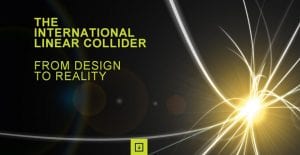International Linear Collider (ILC)
Faculty
Chris Potter
A New Electron-positron Collider
The International Linear Collider is a proposed, state-of-the art collider which is expected to unlock new secrets of our universe.
The existing large hadron collider (LHC), a circular proton-proton synchrotron at CERN, Switzerland, operates at the highest energies any particle accelerator has ever achieved. The new International Linear Collider (ILC) will explore the same phenomena using a different approach. By colliding electrons with positrons, the ILC will allow us to view with exquisite precision the discoveries made by the LHC and investigate new laws of nature.
The potential for exploiting Higgs physics at the ILC is enormous. At the ILC, Higgs particles will be created in electron-positron collisions and their properties measured: e.g. mass, the strength of their interactions with all other elementary particles with unprecedented precision and without assumptions. Will the Higgs properties be as predicted by the Standard Model? Or will it be just the first of a family? Will nature be more complicated than a single “minimal” Higgs boson? The precision of the measurements that can be made at the ILC will allow us to estimate at what energy new particles may appear.
